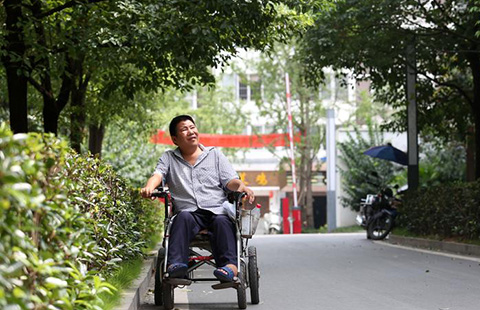MOD: navy drills do not target neighbors
Updated: 2015-07-23 09:40
(ecns.cn)
|
||||||||
'Hype' China threat
Wang Xiaopeng, a maritime border expert at the Chinese Academy of Social Sciences, noted that the speculation is intended to "internationalize" South China Sea issues and to "hype the China threat theory."
In 2013, the Philippines filed an arbitration case to The Hague questioning the maritime boundaries claimed by China. After a hearing in early July, the arbitral tribunal has yet to decide whether it has jurisdiction over the case.
China's ambassador to the Philippines, Zhao Jianhua, called on the Philippines on Wednesday to withdraw the case in The Hague and to return to bilateral negotiations, Reuters reported.
However, observers also agreed that the drills could deter certain countries from escalating and complicating situations in the South China Sea.
By demonstrating the navy's armament and combat readiness, the drills can deter any country that attempts to further stir up the inflammatory situation, such as the US and Japan, Wang Xiaopeng told the Global Times.
With the right to collective self-defense provided by the security bills recently passed in Japan's lower house, Japan could intervene in disputes between China and other countries, including the Philippines and Vietnam, experts said.
"The military exercises can also give the Philippines a warning that it should stop endlessly provoking troubles," Wang Yiwei told the Global Times.

 UN displays Chinese actress Gong Li's portrait at exhibit
UN displays Chinese actress Gong Li's portrait at exhibit
 Family wades across flood to catch train
Family wades across flood to catch train
 Drought hits NE China
Drought hits NE China
 Firefighters launch Hollywood-style posters
Firefighters launch Hollywood-style posters
 Man overcomes disabilities to build thriving business
Man overcomes disabilities to build thriving business
 Rare imperial porcelain revealed for first time in Capital Museum
Rare imperial porcelain revealed for first time in Capital Museum
 Cosplay enthusiasts pose during 'Anime Friends' in Brazil
Cosplay enthusiasts pose during 'Anime Friends' in Brazil
 Top 10 services changed by online-to-offline
Top 10 services changed by online-to-offline
Most Viewed
Editor's Picks

|

|

|

|

|

|
Today's Top News
Xi, Obama exchange views on visit, Iran over phone
Wading through South China Sea sticking points
Drought forces Californians to make lifestyle changes
Thousands flock to donate sperm on Taobao's new service
Ling Jihua's arrest a vital lesson for officials
Cuba, US ties called first step
Life details of Tennessee shooter emerge, but motive elusive
China can now shop at JD.com's US Mall
US Weekly

|

|






